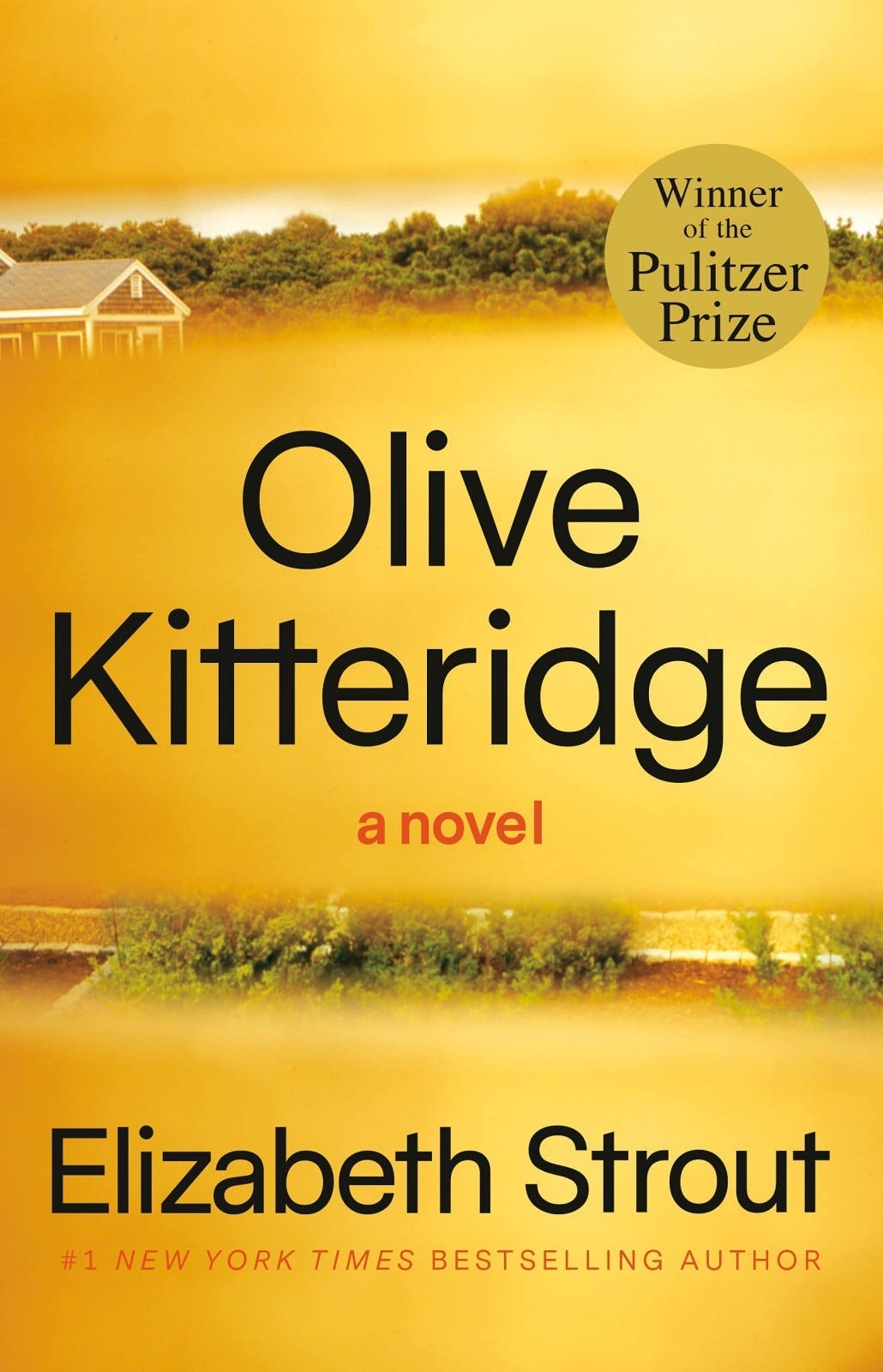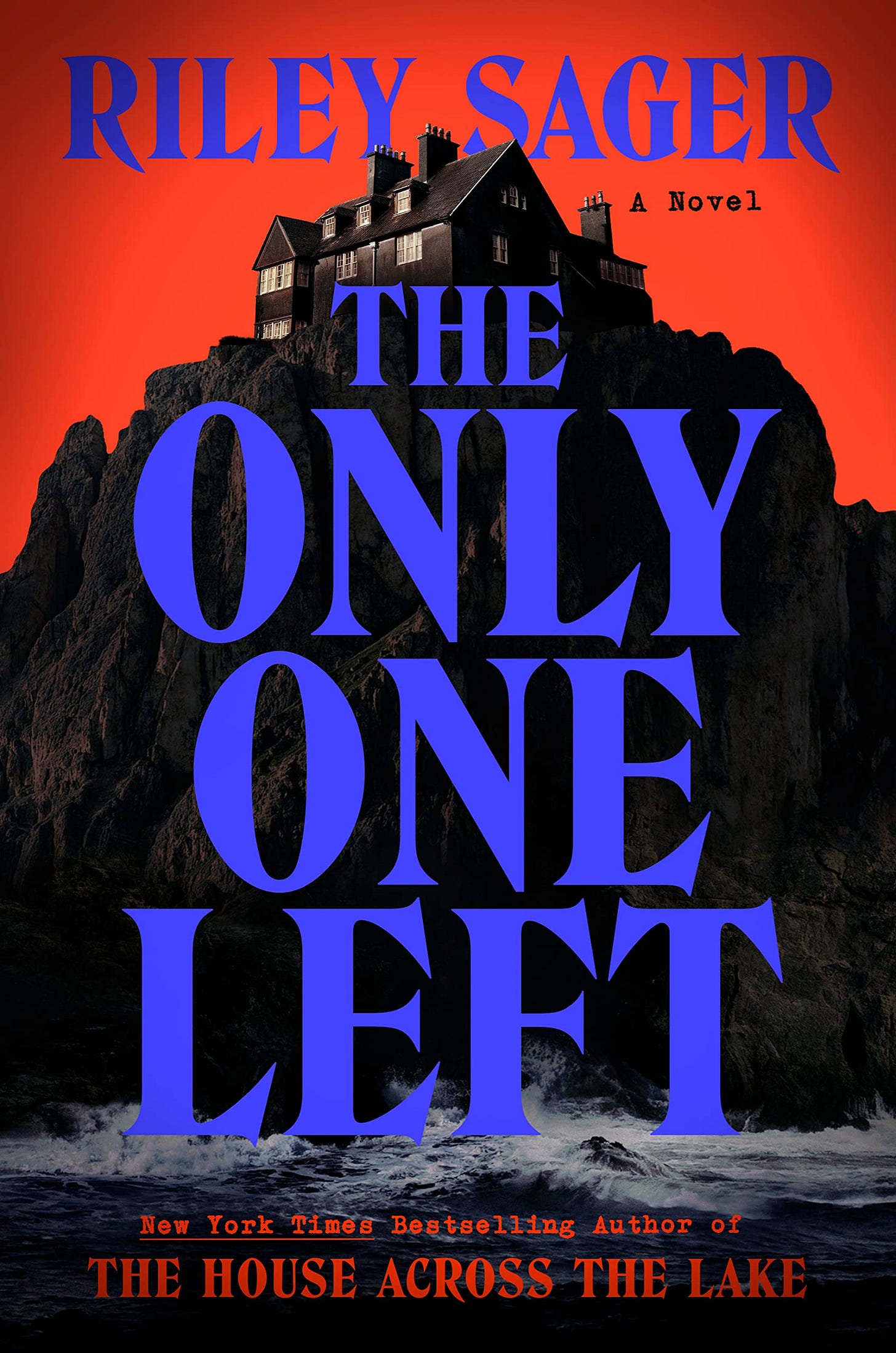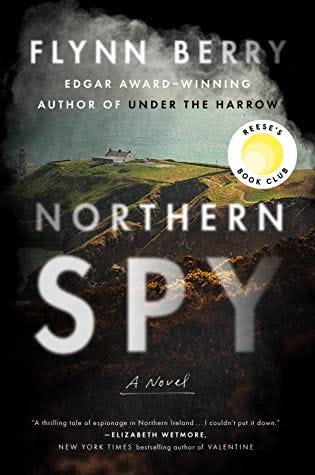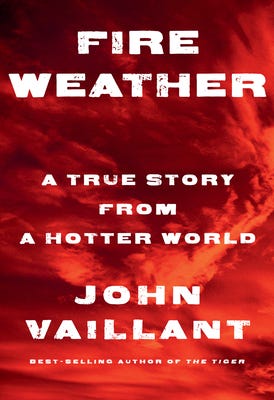what I read last week
olive kitteridge, swimming home, the only one left, northern spy, fire weather
A few years ago, I started reading books set in the location that I’m traveling to next. I’m in Maine for a friend’s wedding this weekend, so I read two books set there this past week.
Literary fiction:
Olive Kitteridge by Elizabeth Strout
Olive Kitteridge is one of the more famous books set on the coast of Maine. Elizabeth Strout won the Pulitzer Prize for it in 2009, and she has since written a sequel (Olive, Again). The book is a “novel of stories” centering on the residents of the fictional Crosby, Maine (primarily based on Brunswick). Olive Kitteridge, a retired schoolteacher, is the anchor of the novel. In several stories, she’s the focus; in others, she’s just mentioned in passing. Olive is a curmudgeon, but Strout gradually paints a more complex portrait of Olive.
Strout writes exceptionally well and has created what feels like an authentic world in Crosby. Still, I feel somewhat conflicted about this book. I love a crotchety main character (I loved A Man Called Ove), but I struggled to connect with Olive and many of the characters. I loved the last story, but I’m not sure reading this book was worth it for that.
My Rating: 3.9/5
Genres: Literary Fiction - Short Stories
Page count: 270 pages
Audio: 12 hours 2 min
Movie/TV Pairings: There is a 2014 HBO miniseries based on the novel starring Frances McDormand (precisely who I picture playing Olive Kitteridge).
Swimming Home by Deborah Levy
Swimming Home is set over the course of a week in a villa outside of Nice, France, in July 1994. Jozef Jacobs, a notable poet (also known as Joe), and his wife, Isabel, a famous war correspondent, are on vacation with their fourteen-year-old daughter, Nina. Another couple, Laura and Mitchell (who own a shop selling weaponry artifacts as souvenirs in England), also stay in the villa with them. A beautiful naked woman, Kitty Finch, appears in their pool one day, and Isabel invites her to stay with them. Their summer vacation gets increasingly weird and (possibly) sinister as the book continues. Reality and dreams begin to blur. Someone goes missing.
Swimming Home is the second book by Deborah Levy that I’ve read (I read Hot Milk a few weeks ago). I didn’t like it quite as much as Hot Milk, but I enjoyed it, even if this book isn’t for everyone. Swimming Home reads almost like a play — most scenes occur around the villa’s swimming pool. Levy explores each character’s secrets, unrealized desires, and missed connections. It’s a slim novel but thematically dense. After I finished this book, I read that Levy was adapting two case histories by Freud for BBC Radio when she wrote this. That thread is definitely evident here — it’s full of Freudian unsatisfied longing.
Rating: 4.5/5
Genre: Literary Fiction
Page count: 165 pages
Thrillers:
The Only One Left by Riley Sager
The Only One Left is set on the Maine coast in 1929 and 1983. In 1983, Kit is a caregiver who lost her job six months earlier. Desperate for work, she takes a job caring for the elderly Lenora Hope, who lives in Hope’s End, a gothic mansion perched on a seaside cliff. Most people in town assume Lenora Hope murdered her family when she was seventeen (this is the 1929 storyline), but the police weren’t able to prove it. Lenora’s previous nurse fled in the middle of the night. Lenora is mute after a series of strokes, and her entire body is paralyzed except for her left hand. Kit attempts to communicate with Lenora as she tries to uncover what happened to the Hope family.
This book was . . . completely fine. I generally enjoyed reading it (I love a gothic thriller), but the twists at the end felt slightly unrealistic (and not necessarily in an interesting magical realist way). I wouldn’t strongly recommend it, but it was pretty entertaining.
Rating: 3.6/5
Genres: Historical Fiction; Thriller
Page count: 385 pages
Audio: This book would work well on audio (13 hours).
The Northern Spy by Flynn Berry
The Northern Spy centers on two sisters in modern Northern Ireland: Tessa, a single mother who works as a BBC producer, and her sister, Marian, who Tessa learns is a secret member of the IRA. Tessa quickly gets sucked into Marian’s world.
This book was overall entertaining. It was well-written, and I was invested in Tessa and Marian. But I had some problems with it. I was generally confused about the contemporary setting and the lack of historical context. Berry mentions the 1998 Good Friday Agreement but then thrusts the reader into an incredibly violent contemporary setting. It felt like it should have been set in the 1970s or 1980s. Also, many plot points felt implausible to me. I often wondered: Why would a trained IRA member make that mistake? Why would the police do that? Berry recently released a sequel to The Northern Spy. Realistically, I probably won’t be reading it.
Rating: 3.5/5
Genre: Thriller
Page count: 278 pages
Audio: 8 hours 19 min
Nonfiction:
Fire Weather: A True Story from a Hotter World by John Vaillant
Fire Weather is a few books in one. Valliant opens with the story of the May 2016 Fort McMurray fire in Alberta, Canada (forcing 88,000 people to evacuate their homes). He then provides a historical overview of scientists focusing on climate change. He concludes by discussing fossil fuel divestment and touching on the Fort McMurray fire and several other recent wildfires.
Fire Weather starts out a bit slow — Vaillant provides a painstaking description of the history of the use of bitumen (a sticky tar-like substance that can be converted into diesel, crude oil, and other petroleum-based products), which is the heart of Fort McMurray’s economy. But then Valliant provides a pretty riveting account of the exponential growth of fire “009” from a small brush fire to a colossal wildfire that devoured an entire city. The firefighters resorted to flattening homes and cars to curb the fire’s spread. This section reminded me a bit of Adam Higginbotham’s Midnight in Chernobyl (an in-depth portrait of the 1986 Chernobyl disaster). It read almost like a thriller, even if many of his asides felt unnecessary (I’m not sure I needed to hear the Texan insurance agent’s thoughts on how friendly Canadians are).
I sometimes rolled my eyes at how Valliant anthropomorphized the fire (he repeatedly asks, “Is fire alive?”), but as the book progressed, I understood what he was trying to do. He gives climate change a face through wildfire; climate change is increasingly catastrophic.
The rest of the book (his overview of the history of global warming scientists and oil divestment) was less interesting. It felt like a historical rehashing without a new perspective. In short, I enjoyed this book (and would be excited to hear someone else’s thoughts on it), but I wouldn’t necessarily jump to recommend it.
Rating: 3.8/5
Genre: Nonfiction (Current Events - Environment)
Page count: 432 pages
Audio: 14 hr 18 min
Articles I can’t stop thinking about:
“Why AI Isn’t Going to Make Art” by Ted Chiang in The New Yorker. My husband and I discussed how this article shows the differences in how we define “intelligence” (memory vs. natural skill).
“Art is something that results from making a lot of choices,” he writes. “The countless small-scale choices made during implementation are just as important to the final product as the few large-scale choices made during the conception. It is a mistake to equate ‘large-scale’ with ‘important’ when it comes to the choices made when creating art; the interrelationship between the large scale and the small scale is where the artistry lies.
“Now consider the current A.I. programs that are widely acclaimed for their performance. AlphaZero, a program developed by Google’s DeepMind, plays chess better than any human player, but during its training it played forty-four million games, far more than any human can play in a lifetime. For it to master a new game, it will have to undergo a similarly enormous amount of training. By Chollet’s definition, programs like AlphaZero are highly skilled, but they aren’t particularly intelligent, because they aren’t efficient at gaining new skills. It is currently impossible to write a computer program capable of learning even a simple task in only twenty-four trials, if the programmer is not given information about the task beforehand.
What I’m cooking:
We made steak fajitas on Sunday night and made this salsa verde cruda from Gabriel Camara’s My Mexico City Kitchen (very easy — you rinse everything and throw it in a blender).
I am a huge fan of the meal salad. We made this charred broccoli salad with spicy cashew dressing, which is one of my go-tos. (I don’t use kale, beats, or endive though — it’s just as good with romaine or little gems).
We also had a steak night with the best potatoes (with this salt and vinegar sour cream sauce on the side).








